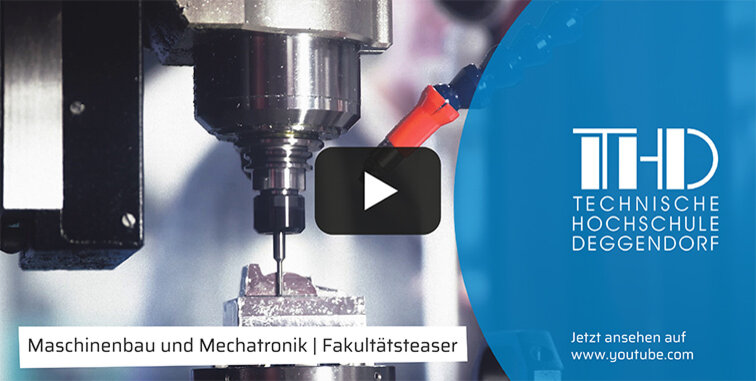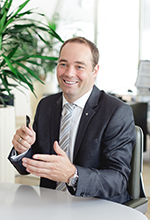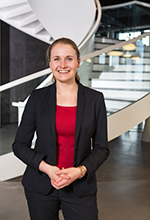Carmen Schnupp
2008 | Mechanical Engineering 2010 | MBA General Management
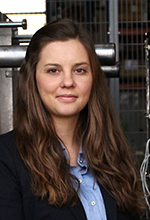
Career Development
After the Abitur I studied twice, both times at DIT. First I studied mechanical engineering (at that time I still had a degree in engineering) and then I did an MBA while still working. That was easy to arrange, because it was block seminars and you didn't have to be on site every weekend.
I did my first (at that time there were still two) internship semester at Linde in the USA, the second one at BMW in Munich. I then wrote my diploma thesis there and returned to Munich for another three years after a three-year detour to MAN Truck & Bus. After that I was able to take over my parents' business in Bogen, Schnupp Hydraulik. We come from the hydraulics sector, but we are now also allowed to build entire production lines and industrial presses for our customers. Today, 160 employees generate annual sales of around € 27 million.
Reminiscing allowed: remember your student days
I have fond memories of my time in Deggendorf. My father and my brother both studied in Munich. The state capital may be more exciting at first glance, but it is also much more anonymous. In Deggendorf there was something to do almost every day or evening in my time, you knew most of the people there and could always meet many friends without having to make a big date. I still have many friends from my time in Deggendorf.
What advice would you give to today's students?
From my own experience of my time as an employee: if possible, try out as many jobs as possible during your studies, which is not so easy later on, and also make contact with possible employers. That worked out very well for me. So I was recommended from the internship semester to the diploma thesis and the subsequent employment.
Besides, a semester abroad is a very good idea. Most companies are now international and it is more a must than a bonus to speak English fluently and have proven that you can get by on your own abroad. I would always prefer to do a practical semester abroad rather than going to university. It's more strenuous, but you get much better in the language and gain deep insights into the working world of the country than in the study environment with lots of other internationals who perhaps don't speak better English than you do.
